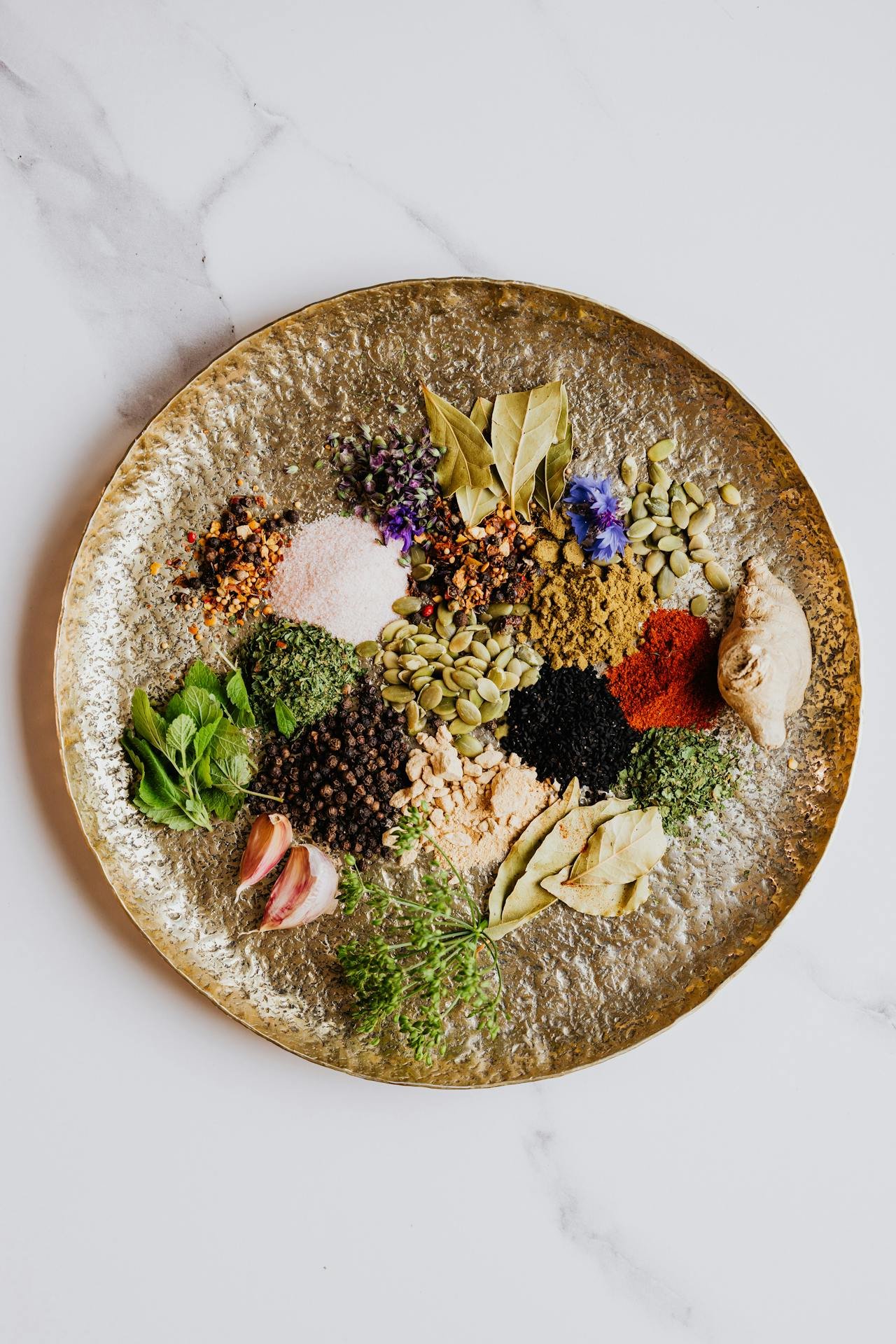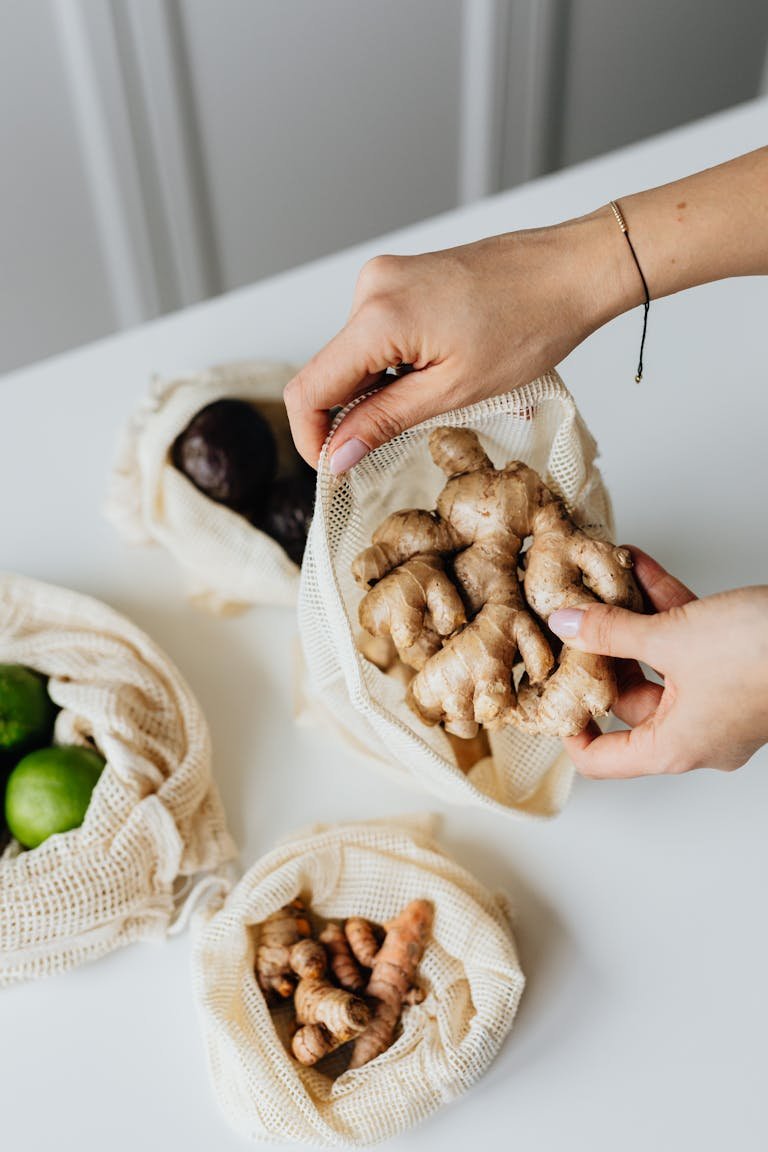Top 10 Must-Have Spices for Every Kitchen
10 Must-Have Spices
If you want to elevate your cooking and add depth to your dishes, stocking your kitchen with essential spices is a great place to start. Spices not only bring vibrant flavors but also offer health benefits and versatility that can transform everyday meals into culinary delights. Whether you’re a beginner or a seasoned home cook, these top 10 must-have spices will become your kitchen staples.
1. Cumin
Origin
Cumin originates from the Eastern Mediterranean and India, where it has been cultivated for thousands of years.
Flavor Profile & Uses
Cumin has a warm, earthy flavor with a slight bitterness and citrusy undertone. It’s a cornerstone of many global cuisines, including Indian curries, Mexican dishes like chili, Middle Eastern stews, and North African tagines.
Benefits
- Aids digestion
- Rich in iron
- Contains antioxidants
Quick Recipe Idea
Cumin-Spiced Roasted Vegetables: Toss carrots, potatoes, and cauliflower with olive oil, ground cumin, salt, and pepper. Roast at 425°F for 25 minutes.
2. Paprika
Origin
Paprika is made from dried and ground peppers, primarily originating from Central America and popularized in Hungary and Spain.
Flavor Profile & Types
Paprika ranges from sweet and mild to hot and smoky. The most common types are sweet paprika, smoked paprika, and hot paprika.
| Type | Flavor | Best Uses |
|---|---|---|
| Sweet Paprika | Mild, slightly sweet | Stews, rice dishes, eggs |
| Smoked Paprika | Deep, smoky, bold | BBQ, grilled meats, sauces |
| Hot Paprika | Spicy, peppery | Chili, marinades, spice blends |
Foods Commonly Used In
Hungarian goulash, Spanish paella, BBQ rubs, deviled eggs, roasted potatoes.
Benefits
- Contains vitamin A
- Adds color and antioxidants
- Enhances metabolism
Quick Recipe Idea
Smoky Paprika Chicken Thighs: Rub chicken with olive oil, smoked paprika, garlic powder, salt, and pepper. Bake or grill until cooked.
3. Turmeric
Origin
Turmeric comes from South Asia, particularly India and Indonesia, where it is a staple in cooking and traditional medicine.
Flavor Profile & Uses
Turmeric has a warm, slightly bitter, and peppery flavor with a bright yellow color. It’s popular in Indian curries, Middle Eastern rice dishes, and health drinks like golden milk.
Foods Commonly Used In
Indian curries, lentil soups (dal), turmeric rice, pickles, and golden lattes.
Benefits
- Powerful anti-inflammatory
- Supports immune health
- Rich in antioxidants
Quick Recipe Idea
Golden Turmeric Rice: Cook rice with turmeric, cumin seeds, and bay leaf for a fragrant side dish.
4. Black Pepper
Origin
Native to South India, black pepper has been a prized spice globally for centuries.
Flavor Profile & Uses
Black pepper is pungent, sharp, and slightly woody. It’s the most commonly used spice worldwide, suitable for nearly every savory dish.
Foods Commonly Used In
Steaks, soups, salads, sauces, and vegetable dishes.
Benefits
- Boosts nutrient absorption
- Has digestive benefits
- Contains antioxidants
Quick Steak Recipe Idea
Pepper-Crusted Steak: Press cracked black pepper onto steak before grilling for a flavorful crust.
5. Cinnamon
Origin
Cinnamon is native to Sri Lanka (Ceylon cinnamon) and Southeast Asia (Cassia cinnamon).
Flavor Profile & Types
Cinnamon is warm, sweet, and woody. The two main types are Ceylon (true cinnamon), which is delicate and sweet, and Cassia cinnamon, which is stronger and more common.
| Type | Flavor | Best Uses |
|---|---|---|
| Ceylon | Delicate, sweet | Baking, desserts, teas |
| Cassia | Strong, spicy | Baking, savory stews |
Foods Commonly Used In
Baked goods, curries, oatmeal, mulled wine, and spiced drinks.
Benefits
- Regulates blood sugar
- Has antimicrobial properties
- Supports heart health
Quick Oatmeal Recipe Idea
Cinnamon-Spiced Oatmeal: Add ground cinnamon, a pinch of nutmeg, and honey to your morning oats.
6. Coriander
Origin
Coriander originates from the Mediterranean and Western Asia.
Flavor Profile & Uses
Coriander has a citrusy, floral aroma with a mild, slightly sweet flavor. It pairs well with cumin and is used in curries, spice blends, and fresh salsas.
Foods Commonly Used In
Indian curries, Middle Eastern dishes, Mexican salsas, and marinades.
Benefits
- Supports digestion
- May reduce blood sugar levels
- Rich in immune-boosting antioxidants
Quick Chutney Recipe Idea
Fresh Coriander Chutney: Blend fresh coriander leaves, green chili, lemon juice, and salt. Use as a dip or spread.
7. Garlic Powder
Origin
Garlic has been cultivated in Central Asia for thousands of years.
Flavor Profile & Uses
Garlic powder provides a mellow, slightly sweet garlic flavor without the moisture of fresh garlic. It’s perfect for seasoning rubs, sauces, and quick dishes.
Foods Commonly Used In
Roasted meats, vegetables, sauces, dips, and spice blends.
Benefits
- Contains antioxidants
- Supports cardiovascular health
- May boost immune function
Quick Roasted Potatoes Recipe Idea
Garlic Powder Roasted Potatoes: Toss potatoes with olive oil, garlic powder, rosemary, salt, and pepper; roast until golden.
8. Chili Powder
Origin
Chili powder is a blend of ground dried chilies and other spices, developed primarily in Mexico and the United States.
Flavor Profile & Types
Chili powder adds heat and depth. Heat levels vary depending on the blend.
Foods Commonly Used In
Chili con carne, tacos, enchiladas, BBQ rubs, and spicy soups.
Benefits
- Contains capsaicin, which may reduce inflammation
- Boosts metabolism
- Rich in vitamins A and C
Quick Chili Recipe Idea
Spicy Chili Con Carne: Use chili powder in your chili recipe for heat and depth.
9. Oregano
Origin
Oregano is native to the Mediterranean region.
Flavor Profile & Uses
Oregano has a robust, slightly bitter, and peppery flavor. It’s widely used in Mediterranean and Mexican cooking.
Foods Commonly Used In
Italian pasta sauces, Greek salads, Mexican salsas, grilled meats, and pizza.
Benefits
- Antibacterial and antifungal properties
- Supports respiratory health
- Contains antioxidants
Quick Chicken Recipe Idea
Oregano Lemon Chicken: Marinate chicken in lemon juice, oregano, garlic, and olive oil before grilling.
10. Ginger
Origin
Ginger is native to Southeast Asia and has been widely used in Asian cooking and medicine.
Flavor Profile & Uses
Ginger is spicy, warm, and slightly sweet. It’s used fresh or dried in cooking, baking, and beverages.
Foods Commonly Used In
Stir-fries, curries, baked goods, teas, and marinades.
Benefits
- Anti-inflammatory and digestive aid
- Helps reduce nausea
- Boosts immune system
Quick Tea Recipe Idea
Ginger Tea: Steep fresh ginger slices in hot water with honey and lemon.
How to Choose and Store Your Spices
Buying Tips
- Purchase whole spices when possible; grind fresh for better flavor
- Buy from trusted brands or specialty spice shops
- Check expiry dates and avoid spices that look dull or smell weak
Storage Tips
- Store in airtight containers away from heat, light, and moisture
- Label jars with purchase date
- Use within 1–2 years for ground spices, 2–3 years for whole spices
Spice Blends: Convenience Meets Flavor
If you’re short on time, pre-made spice blends can be a lifesaver. Popular blends include:
- Garam Masala (India)
- Cajun Seasoning (Southern US)
- Ras el Hanout (North Africa)
- Za’atar (Middle East)
Try making your own blends using the spices listed above to customize heat and flavor levels.
Spice Up Your Cooking
Having these 10 must-have spices in your kitchen ensures you can create a wide variety of dishes that are flavorful, healthy, and exciting. Experiment with different combinations, try new recipes, and don’t be afraid to add a little extra spice to your life!





